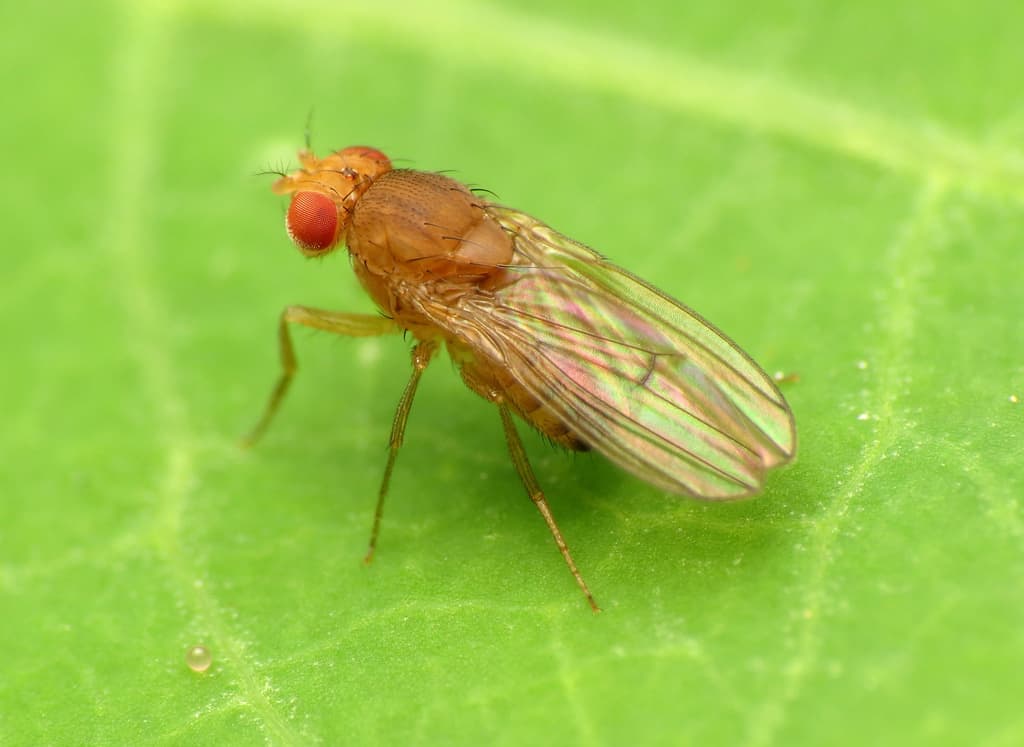What happens in the brain when a decision-maker is weighing possibilities against risks? A group of researchers has been interested in this – by studying male banana flies (Drosophila immigrans) on their way to mating.
With the help of light and shadows, the researchers created an artificial threat that would remind them of a flying predator. Then, they used microscopes to examine which nerve cells in the fly's brain were activated when the threat occurred during courtship.
Gave up courtship
Early on in the mating process, neurons in the brain were triggered that disrupted other neurons controlled by serotonin, a signaling substance that regulates the feeling of well-being. It worked as an incentive for the males to abandon courtship and instead seek safety.
But when the male was close to mating, he no longer detected the threat, according to the study published in the journal Nature.
Reacted worse to threats
The researchers explain this by the fact that the amount of dopamine, a signaling substance that drives motivation, increased as the fly approached its goal: to mate. Dopamine then functioned as a filter that reduced the fly's ability to react to threats in order to focus on mating. It simply became "blinded by love", the researchers write in the study.
Dopamine is the key to this decision-making process, but the levels of dopamine are closely linked to how close the goal is – how likely is success? says Carolina Rezaval from the University of Birmingham, who led the study, in a comment.






